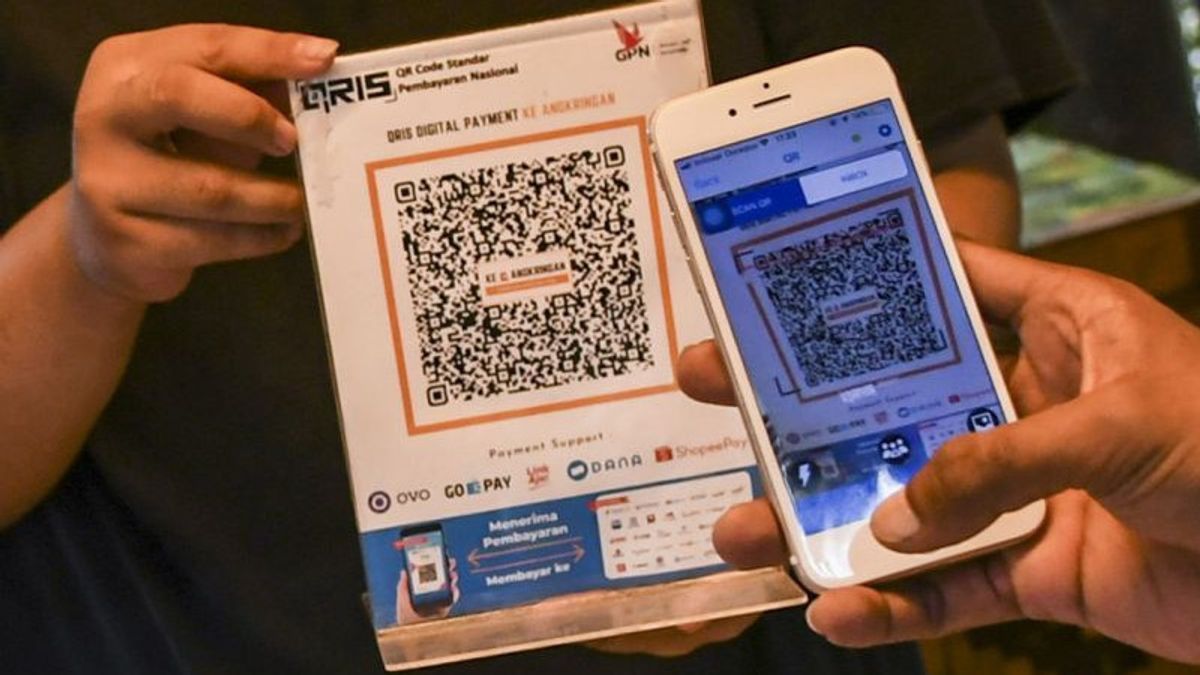YOGYAKARTA - The presence of QRIS Cross Border has made transaction needs easier for Indonesian citizens while in Thailand and Malaysia, and vice versa. This cross-border payment system also provides benefits for the economic growth of MSMEs. However, there are still many people who do not know what QRISCross Border is.
Bank Indonesia (BI) has collaborated with the RPC with Bank Negara Malaysia (BNM) and the Bank of Thailand (BOT) to provide cross-border payments, it is proven that QRIS Cross Border. The implementation of this cross-border payment system was welcomed by the people of each country.
It is proven that QRIS Cross Border has succeeded in opening up opportunities for the tourism industry and domestic MSMEs to have wider access to the global market. Based on BI data, Indonesia - Malaysia's Inbound QRIS Cross Border transactions reached 8,533 transactions. Meanwhile, Inbound QRIS Cross Border Indonesia-Thailand reached 825 transactions.
Therefore, MSME actors and people who often travel abroad need to know what QRIS Cross Border is and how it works.
QRIS Cross Border is one of the features in the payment system for the Qucik Response Code Indonesia Standard (QRIS) which allows cross-border transactions using the QR Code.
The cross-border payment system through the QR Code is an initiation of the Central Bank in ASEAN (state in Southeast Asia). In realizing QRIS Cross Border, synergy and collaboration from various related parties are needed, ranging from Central Banks, Payment Services Providers, Associations, and others.
In presenting and running the QRIS Cross Border payment system, Indonesia, Malaysia, Singapore, the Philippines and Thailand have agreed to use the QR Code, fast payment, data, RTGS, and local currency transactions as one of the payment methods in the region.
This step is carried out to strengthen regional economic integration through cooperation in payment connectivity in ASEAN so that it can be faster, more transparent, cheap, and inclusive. The existence of QRIS Cross Border aims to encourage cross-border business growth and support the digital economy in Indonesia.
The existence of QRIS Cross Border has made it easier for Indonesian citizens to make transactions while in ASEAN countries to collaborate with the RPC. Likewise for foreigners such as from Malaysia and Thailand who are visiting Indonesia. When you want to make payments for various needs in other countries, transactions can be done simply using your cellphone by scanning your QRIS.
The QRIS Cross Border's working method is very simple, namely that foreign customers can make purchases at Indonesian merchants using payment applications from their country of origin. The payment application used must be those that already support the QRIS scan service. Customers only need to scan the QR Code provided by the merchant and the payment will be processed immediately.
QRIS Cross Border can support business people in Indonesia to be able to transact more easily with international customers without the need to face the problem of cross-border payments and complexity. The use of this transaction system also provides benefits for MSMEs because the cost of MDR is cheaper than when using international payment facilities.
Similar benefits are also felt by customers or foreign tourists. For example, when buying local products in tourist destinations, customers do not need to spend cash or use credit cards to make payments. Transactions are sufficient through a QR Code scan so that they are more practical. In addition, another advantage is the cheaper currency exchange rate.
That's a review of what QRIS Cross Border is and how it works. BI noted that the implementation of the RPC between Indonesia Malaysia and Thailand has shown positive results. BI also plans to realize this payment system with the Central Bank of Singapore by the end of 2023.
Stay up to date with the latest domestic and other overseas news on VOI. You present the latest and most updated nationally and internationally.
The English, Chinese, Japanese, Arabic, and French versions are automatically generated by the AI. So there may still be inaccuracies in translating, please always see Indonesian as our main language. (system supported by DigitalSiber.id)








